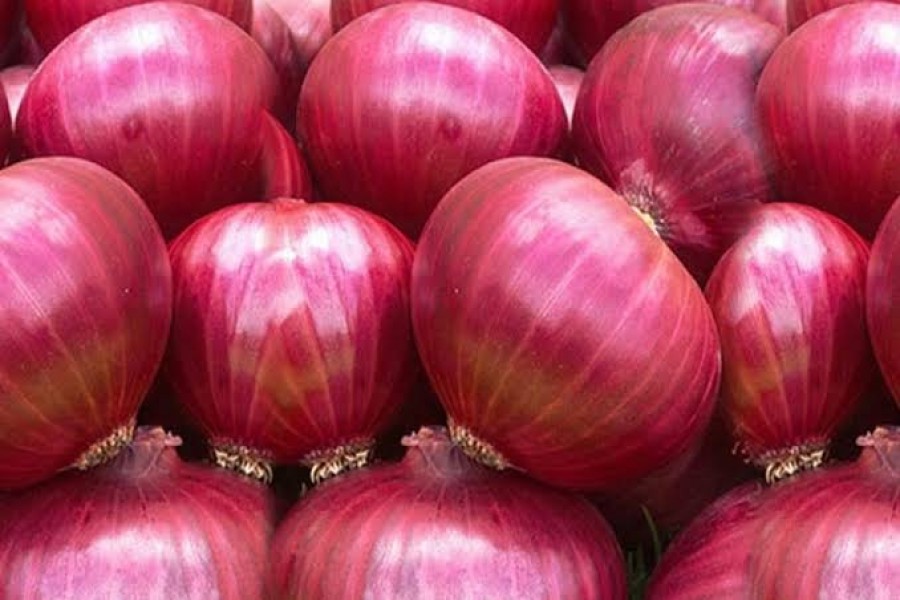The record price of onion -the latest high of Tk 150-160 a kilogram cross all previous marks -defies reasons and ethical business practice. Had it been a simple case of huge shortfall in supply compared to demand, it could have the approval of the free-market economy. According to official statistics, the country produced 2.33 million tonnes of onions, a record harvest, and imported 1.92 million tonnes. The total is more than the country's need for 4.1 million tonnes. Then how come that onion price would shoot up to the unprecedented level?
Either the statistics are wrong or there has been market manipulation at its worst. Which one it is, the government, to be more precise the ministry of commerce should tell the public. Let the authorities publish a comprehensive statement on this affair. Its repeated assurances that the essential spice's price would soon come down have been of no use. It has evidently failed to rein in the traders who, it seems through syndication, raised the price doubly overnight following India's announcement of the imposition of a ban on export of the item. Contrast this atrocious price hike with the prices farmers fetched during the harvesting or post-harvest periods. The price in the market hovered between Tk 20 and 30 but at the growers' level it was between Tk 10 and 20. Once again, it is the middlemen and stockists and wholesalers who have eaten the cream at the gross deprivation of farmers.
Now that onion price has shot up to an outrageous level, some have drastically reduced consumption of the vegetable-cum-spice. Even the prime minister has suggested that onion is not a must for preparation of every dish. The fact is people here do not use onion as a vegetable item as do some people in parts of India. Here onion is considered an indispensable spice. So its use can be limited to a great extent. But that does not solve the problem. In a democratic dispensation people cannot be delivered a raw deal.
Before the fresh round of rise in onion price, reports had it that there was a gap of Tk 40 between prices in the wholesale and retail markets. So the price was raised in the wholesale market too. No sooner had the price there registered a rise than the retail market followed suit with a push to the price to an astronomical level. This is where market monitoring could make a difference. If the mobile court can check price lists of various retail goods in a market, the same could have been effective in reducing the profit margin to a reasonable level.
This senseless and immoral trade practice can be and should be countered with a nationwide campaign for consumer rights. Here the government and the people must devise ways for dismantling the strong trade syndicate. If record harvest is abused for unearned income by middlemen, sections of dishonest traders, the best option is to build up stocks in godowns or silos in the farming region. Farmers will be allowed to preserve their produces in those warehouses at a minimum charge and sell those later on at their convenience.
This is the beginning of November. Already piajkali (immature onion with green stalk) has made its appearance in the market. If onions' use is minimised and demand falls in the market, hoarders will find them at a disadvantage. With the new crop appearing now, price of onion is bound to fall. The older stocks will either rot or grow shoots. Traders in effect take the nation a hostage on this or that pretext. The syndicated business needs to be tamed and until a strong consumer rights movement picks up steam, reduction of consumption can only be a temporary answer to the problem. If the demand falls drastically, traders will feel the pinch too.


